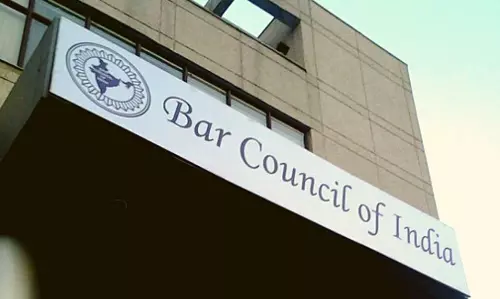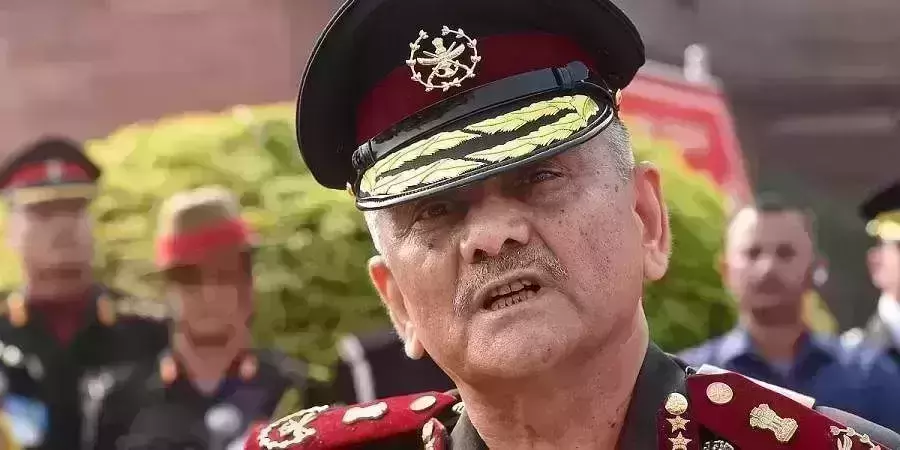
Exploring prospects of coalition governments
text_fieldsFile photo
"Reliable reports suggest that the main item of discussions held by Telengana chief minister Chandrashekhar Rao with Kerala chief minister Pinarayi Vijayan, was a federal coalition of regional parties, a theme he has been talking loud about since last year.
In reponse, Pinarayi Vijayan is learnt to have said that he biggest challenge faced by the country is BJP's communalism and emphasised the need for united resistance against it by regional parties. But given the forecasts of a hung parliament getting more currency following the 17th Lok Sabha elections, it is not clear whether Pinarayi was prepared to share the dream of Chandrashekhar Rao of a coalition government of non-Congress, non-BJP parties. Quite naturally, pending a decision by his party CPM, Pinarayi Vijayan cannot be expected to state a position. Rao, who by now has held talks with Karnataka chief minister and Janata Dal-S leader Kumaraswamy, has informed that he will soon meet DMK leader MK Stalin and later Mayawati and Akhilesh Yadav of UP and Bengal chief minister Mamata Banerjee. Following that, Rao also plans to meet the national leaders of Opposition parties at Delhi. However, Stalin has said that he is not interested in such a meeting. The idea put forward by CPI General Secretary Sudhakara Reddy the other day was that of a united front government of regional parties with the support of Congress from outside.
For all the big claims made by BJP at the beginning about its electoral prospects, as the elections come to their final phase, BJP's confidence is visibly sagging. In this backdrop, there is a looming relevance of post-poll alliance. BJP general secretary Ram Madhav has gone on record as saying that BJP is unlikely to win a majority on its own, but he will be happy if NDA can win 271 seats. He also feels that the party will have to seek the support of alliance partners to form a government. If BJP emerges as the largest single party, the saffron brigade is sure to use everything upto its last weapon to cobble together an absolute majority. Whatever be the size of funds required for that, it will not be an issue for the party, and it will be prepared to offer inducements of any post to others too. The possibility of a non-BJP government being formed comes only if these fail to happen. Observers feel that whatever be the extent to which the Congress improves its position, in the current dispensation it is unlikely to win more than hundred seats. In such a scenario, instead of taking the initiative for forming a government on its own, Rahul's move may be to offer support to an alliance of parties outside NDA. The political moves by Telengana chief minister, and founder of Telengana Rashtra Samiti (TRS) Chandrashekhar Rao may be in view of such a possibility. However, to achieve that end, he has certain obstacles to overcome.
The first hurdle is that BSP supremo Mayawati and West Bengal chief minister Mamata Banerjee alike do nurture prime ministerial ambitions. Even Deve Gowda, who had once been prime minister, is wondering why he cannot lead the country again. It was with his reaching the highest office that many regional party leaders even started having dreams of becoming prime minister. The worst curse of Indian politics is the excessive urge to capture power for oneself - above any other motivation. It is also true that it was by capitalising on this that enemies of secular democracy are able to ensure power for themselves. If the prime and urgent need of the country is to save India from fascists, the first thing to be decided is not who should become prime miniser. The people are looking forward to a government, whoever be its prime minister, that honours the spirit of our democratic constituition, committed to ensuring rule of law in the country, and recognizing all sections of people as citizens with equal rights. That government should be one that fulfils at least the primary intersts of social justice. India needs to be liberated from the forces that instigates utmost hatred, enmity and bellicosity within and outside the country. There should be a way out from the current state of corruption, concentration of wealth and dominance of money power. Education, health and employment should be accepted as the fundamental right of any Indian. What is needed on an urgent basis is a common minimum programme that reflects these needs. A coalition that is formed on its basis will be acceptable to the people, regardless of who leads it. On the contrary, national politics should not be a forum of unscrupulous bargaining by those whose desire is to die at least as a former prime minister. The growth of fascists so far has been the heavy price the country had to pay for that. The sooner everybody realises that the better.























